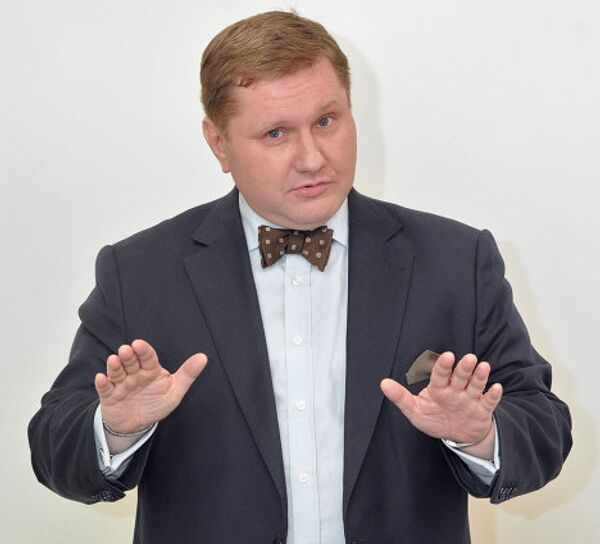Even if he is styled as the “president,” the head of the Russian government’s executive branch is a de facto monarch. Accompanied by His Holiness the Orthodox Church Patriarch Kirill, President Vladimir Putin flipped through touch-screen presentations, watched videos and listened to talks by Father Tikhon Shevkunov, rumored to have access to Putin’s inner circle. The president had a special tour of “Orthodox Russia: The Romanovs,” a glitzy yet informative high-tech exposition detailing 400 years of the country’s last and most glamorous dynasty. In 1613, a young nobleman Mikhail Romanov was chosen by the boyars to be crowned tsar after a decade of violent domestic strife and foreign invasions. Watching the television coverage of the exhibition’s opening, one could have been forgiven for thinking that it was the Russian emperor who was touring it.

All the Romanov festivities were attended by the president, high-ranking members of his administration, chairs of both houses of parliament and other luminaries, clearly showing that the anniversary is not just a historical date, but a significant state occasion. It is not for nothing that even the wall calendar sent out last December as a Christmas gift by Putin’s administration was dedicated to the “Romanov year.” Grand Duchess Marie, who styles herself as head of the Russian Imperial House, and her son George, had a separate program in Russia, never mixing with high-level government officials.
The Kremlin wanted the anniversary to be its show. Not because Putin decided to restore monarchy in Russia, but because it suits his political aims. He sees himself as someone who has to give Russia a new sense of self. This uniqueness of what is now semi-officially called “the Russian civilization” is designed to prove that Western political and economic models are not, or at least, not entirely suitable for the country.
The conclusion is pretty much transparent: Russia does not need to change anything in its current political setup, in which the executive actually lords every other branch, including the legislature and the judiciary. Nostalgia for the strong-arm political system is evident in the recently unveiled concept of a unified history course for Russian schoolchildren. It shuns explicit condemnation of the communist regime’s crimes.
This not-so-subtle message is being amplified by massive state media output, portraying the West as an eternal enemy of Russia. In the last few days, the Russian public was treated to a documentary miniseries, shot and presented by one of Russia’s most eminent journalists, Vladimir Pozner. In it he lambasts modern Germany for alleged lack of contrition for its Nazi past. Pozner, who for many years used to be the voice of Soviet foreign broadcasting, claims he “still smells Nazism” in Munich. Shown in primetime in the run-up to the crucial Vilnius Eastern Partnership Summit, where an EU association agreement with Ukraine is expected to be signed, the film is proof that Germany – a country that has long been a pivot of Russia’s European policy – is no longer out of bounds for criticism or even outright satire.
So the enemies within are clearly defined, as is the solution to the country’s ills: an imperial-style presidency to rival that of De Gaulle, or even the Romanovs. A couple of years ago I suggested in this column that Putin’s determination to endow Russia with a new national identity and history would boil down to the French model of historical narrative. In the French historical narrative everything is great – the Bourbon monarchy, the revolution of 1789, the counterrevolution and Napoleon, colonialism and post-colonialism, wars and even defeats, as in 1940. Shameful elements of the past are glossed over or omitted. It seems that the Russia is taking the same path as France in its approach to history.
The views expressed in this article are the author’s and may not necessarily represent those of RIA Novosti.
What is Russia's place in this world? Unashamed and unreconstructed Atlanticist, Konstantin von Eggert believes his country to be part and parcel of the "global West." And while this is a minority view in Russia, the author is prepared to fight from his corner.
Konstantin von Eggert is a freelance commentator and consultant. In 2010-2013 he worked for Kommersant FM radio in Moscow as a commentator and as Editor-in-Chief. He was Diplomatic Correspondent for Izvestia in the 1990s and later the BBC Russian Service Moscow Bureau Editor. Konstantin has also spent some time working as ExxonMobil Vice President in Russia. He was made Honorary Member of the Order of the British Empire by Queen Elizabeth II.
Due West: Khodorkovsky: From Prison to Politics?
Due West: Russia’s Weak Identity Is the Key to Moscow’s Nationalist Riots
Due West: Deciphering the Kremlin: Reading the Runes of Russian Officialdom
Due West: Black Clouds on the Horizon for Russia and Its Neighbors
Due West: A Dividing Issue, 20 Years On: Russia’s 1993 Constitutional Crisis
Due West: Russia’s G20 Summit Promised Little, and Delivered Even Less
Due West: The Kremlin Faces Tough Choices Over Syria
Due West: Russia’s Aggressive Defensiveness Is Damaging Its Image
Due West: Why Putin Sees Obama as a Weakling
Due West: Checks Without Balances



